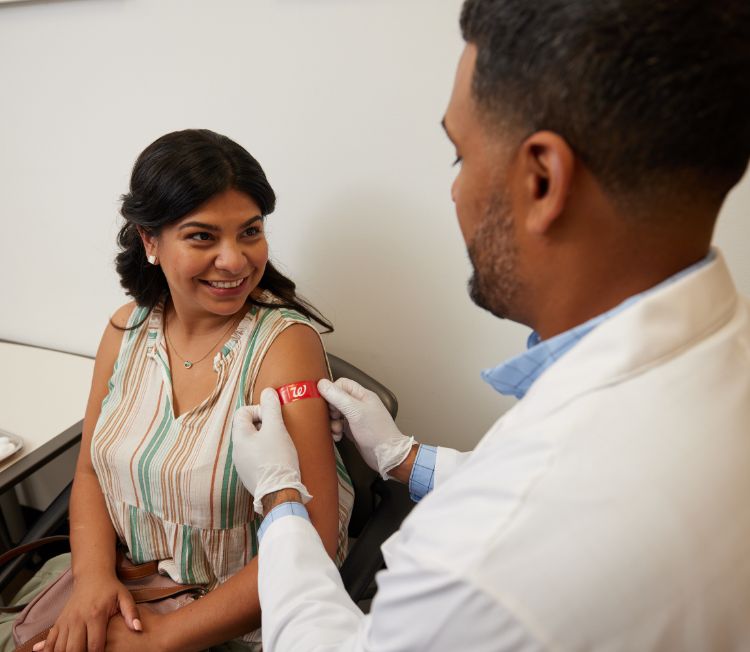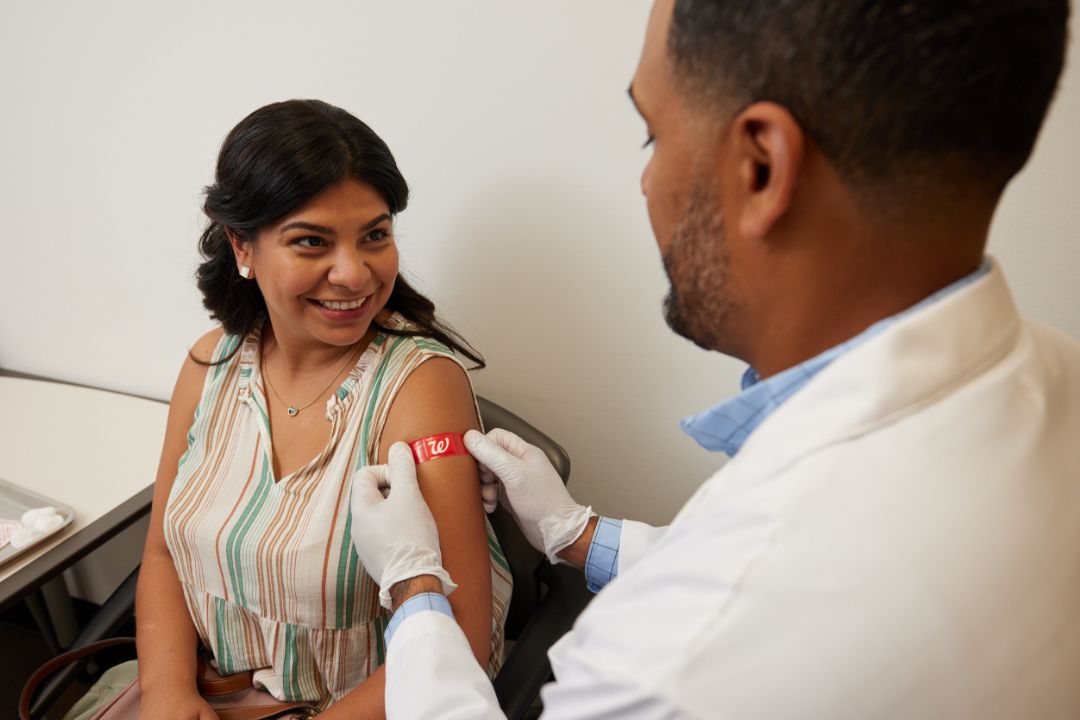- What is the hepatitis A vaccine?
The hepatitis A vaccine is the best way to prevent infection and is safe and effective. The vaccine, given in 2 doses 6 months apart, is injected into the arm or thigh muscle. Both shots are needed for long-term protection.
To learn more about the hepatitis A vaccine from the CDC, download this PDF or visit the CDC website.
- Who should get the hepatitis A vaccine?
All children ages 12–23 months should get vaccinated against hepatitis A. Children and adolescents ages 2–18 years who have never received a hepatitis A vaccine may also get vaccinated.
People at an increased risk from hepatitis A include:
- Travelers to countries that have high rates of hepatitis A
- Families planning to adopt a child or care for an adopted child from a country with high rates of hepatitis A
- Men who have sex with men
- Users of injection and non-injection drugs
- People with chronic liver diseases, such as hepatitis B or hepatitis C
- People with HIV
- People experiencing homelessness
- People who work with hepatitis A infected animals or in a hepatitis A research laboratory
- Any unvaccinated person who has been exposed to the hepatitis A virus
The safety of the hepatitis A vaccine for pregnant people hasn't been determined. However, there's no evidence of harm or risk to either pregnant people or their unborn babies. People who are pregnant or plan to become pregnant should ask their doctor if they should receive the vaccine.
- Who should not get the hepatitis A vaccine?
- Anyone with a life-threatening allergy to any vaccine component, such as aluminum and neomycin sulfate
- Anyone with moderate or severe illness should wait until they recover to be vaccinated
- What are the side effects of the hepatitis A vaccine?
Mild-to-moderate side effects:
- Soreness, redness or swelling at the injection site
- Tiredness
- Headache
Severe side effects, although rare, may include serious allergic reactions. Symptoms include:
- Difficulty breathing
- Wheezing
- Hives
- Pale skin
- Fast heartbeat
- Dizziness
Over-the-counter pain relievers such as acetaminophen or ibuprofen can help ease pain and reduce fever. Contact your doctor or pharmacist if you have any unexpected or worsening reactions after receiving a vaccine.
Schedule Hepatitis A Vaccine | Walgreens

possible prior to travel
What is hepatitis A?
Hepatitis A is one of several types of hepatitis viruses that cause inflammation affecting the liver’s ability to function. It’s usually spread through ingesting contaminated food or water or close contact (including sexual contact) with an infected person.
Symptoms of hepatitis A include flu-like illness, jaundice, stomach cramping and diarrhea. Frequent handwashing with soap and warm water after using the bathroom, changing a diaper or before preparing food can help prevent the spread of hepatitis A.
Frequently Asked Questions
If you believe you have a medical emergency, please call 911.
References:
